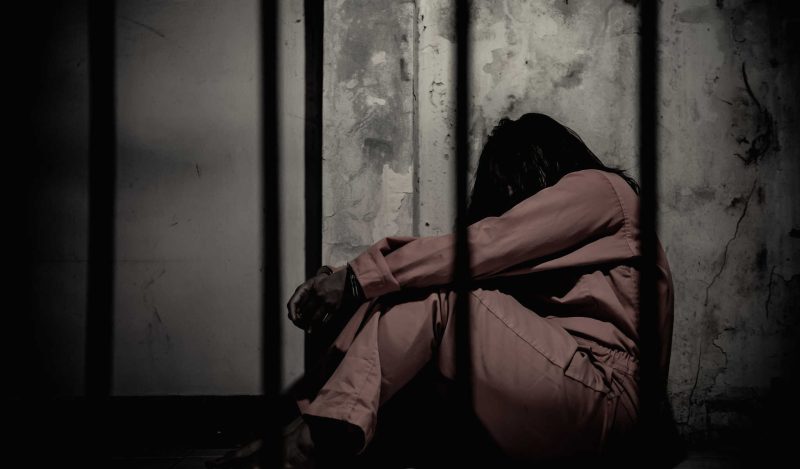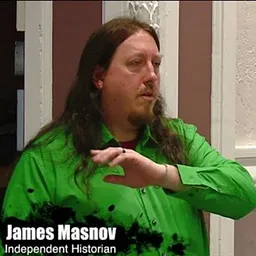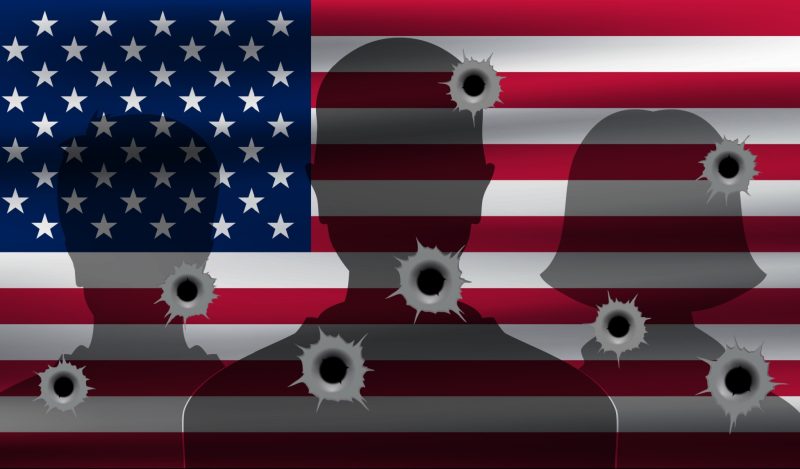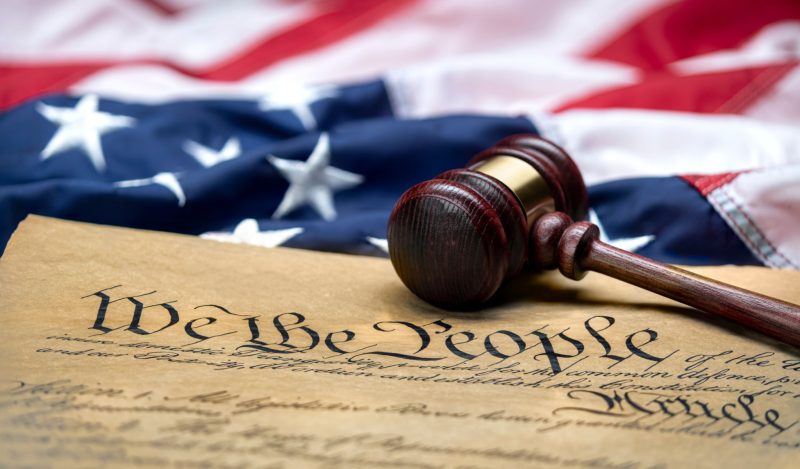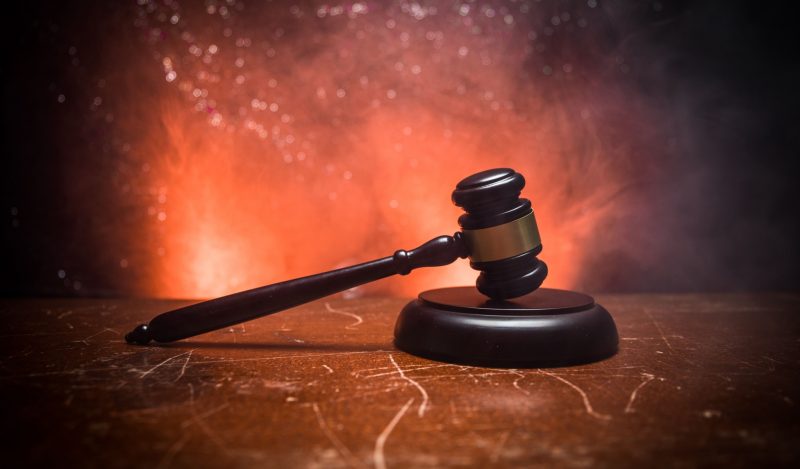The legacy media attempts to frame the Court, on a regular basis, of being in an ideological battle. It acts as though matters are continuously in tension between the leftist members and the right-wing members, and yet (once again!) a 2022 case underscores how such a framing is flawed on its face. This may be why the decision was not discussed to any substantial degree among the Ancien Media.
The Dobbs decision that overruled Roe v. Wade and Planned Parenthood v. Casey, and the draft opinion that leaked in May 2022, further obscured other important decisions, especially those which (unlike Dobbs) do not cast the Court as one that makes easy-to-trace, ideologically-predictable decisions.
In United States v. Zubaydah (03/03/2022), the majority of the Court, including most of its conservative wing and most of its progressive wing, ruled that disclosing torture operations by the CIA against accused terrorist Abu Zubaydah in Poland in 2002 and 2003 would be harmful to national security. Thus, it could remain officially a state secret, even as the events have been corroborated by numerous news outlets and investigators over many years.
The events have been openly discussed. One notable and recent example is Alex Gibney’s documentary about the treatment of Zubaydah by the CIA that was released through HBO in 2021. Despite the facts of the case being about as open of a secret as one could imagine, the Court nevertheless ruled that disclosing it officially would be a threat to US national security.
Zubaydah, who was accused by the CIA of possessing knowledge of future attacks on the United States in the aftermath of 9/11, has been incarcerated now for twenty years and has never been put on trial for the crimes and conspiracies he is alleged to have committed. He was tortured for several months (the US federal government officially labels this enhanced interrogation) while held at a CIA black site in Poland.
In the Court’s summary of the facts of the case, they describe that “In 2010, Zubaydah filed a criminal complaint in Poland, seeking to hold accountable any Polish nationals involved in his alleged mistreatment at the CIA site ostensibly located in that country.” Allowing for such a complaint to move forward would require the kind of disclosure the United States government (particularly the executive branch) does not want to admit to.
The majority opinion was written by progressive, and now retiring, Justice Stephen Breyer. The legal standard regarding such disclosure states: “The state secrets privilege permits the Government to prevent disclosure of information when that disclosure would harm national security interests” (United States v. Reynolds). The Court observed, “In certain circumstances, the Government may assert the state secrets privilege to bar the confirmation or denial of information that has entered the public domain through unofficial sources.” The Court asserted, “The CIA contractors’ confirmation (or denial) of the information Zubaydah seeks would be tantamount to disclosure by the CIA itself.” The Court reasoned that “the state secrets privilege applies to the existence (or nonexistence) of a CIA facility in Poland, and therefore precludes further discovery” because such an admission would be potentially damaging to the national security interests of the United States.
The majority opinion may appear to some, as it does to yours truly, as a case of the Court seeking to save the executive branch from embarrassment for its excesses during the early 2000s in response to a terrorist attack. It is not as though such an impulse is not understandable. The point is, instead, that the American judiciary was not designed so that shameful actions of the other branches could be swept under the rug. Rather, its purpose is to hold the other branches accountable.
Six of the nine Justices signed on to Breyer’s reasoning, with varying rationales and spins of their own. This included the conservative bloc of Alito, Roberts, Thomas, and Kavanaugh, as well as Breyer’s fellow progressive Justice, Elena Kagan.
Justice Neil Gorsuch wrote the dissent, with Justice Sonia Sotomayor joining him. Gorsuch aimed squarely at the logical and moral disconnect of the Court’s majority, stating that there “comes a point where we should not be ignorant as judges of what we know to be true as citizens.”
He went on, asserting, “This case takes us well past that point. Zubaydah seeks information about his torture at the hands of the CIA. The events in question took place two decades ago… Official reports have been published, books written, and movies made about them. Still, the government seeks to have this suit dismissed on the ground it implicates a state secret—and today the Court acquiesces in that request. Ending this suit may shield the government from some further modest measure of embarrassment. But respectfully, we should not pretend it will safeguard any secret.”
Perhaps most powerful is Gorsuch’s cataloging of torture, seemingly to put it into some official legal record, despite the majority’s decision and despite their desire to further the obfuscation of the acts committed by CIA contractors:
“In an effort to extract that information, the CIA hired two contractors, James Mitchell and John Jessen, and authorized them to employ what it called ‘enhanced interrogation techniques.’ … Mitchell and Jessen worked ‘on a near 24-hour-per-day basis’ starting August 4, 2002… They waterboarded Zubaydah at least 80 times, simulated live burials in coffins for hundreds of hours, and performed rectal exams designed to establish ‘total control over the detainee.’ … Six days into his ordeal, Zubaydah was sobbing, twitching, and hyperventilating… During one waterboarding session, Zubaydah became ‘completely unresponsive, with bubbles rising through his open, full mouth.’ …He became so compliant that he would prepare for waterboarding at the snap of a finger.”
Justice Gorsuch observes, “By this point, Mitchell and Jessen concluded that it was ‘highly unlikely’ that Zubaydah possessed the information they were seeking, and they sought to end the interrogations.”
The enhanced interrogations, however, did not end. Gorsuch notes that it “seems their assessment may have been correct. Although Zubaydah’s relationship with al Qaeda remains the subject of debate today, the authors of the Senate Report found that the CIA’s records ‘do not support’ the suggestion that he was involved in the September 11 attacks… At the time, however, CIA headquarters was not yet persuaded by Mitchell’s and Jessen’s report. It instructed the pair to continue their work… Following these directions, Mitchell and Jessen carried on for two more weeks until their superiors finally concluded that Zubaydah ‘did not possess any new terrorist threat information.’”
Gorsuch’s account of the facts in his dissent underscores both the depravity involved in the use of torture as well as its apparent failure to accomplish anything of substance. The rationalization of torture that came to the fore in the aftermath of 9/11 was disheartening at a fundamental human level. The fact that it also didn’t seem to work for gathering important information in the nascent War on Terror emphasizes the absurdity of the entire enterprise.
The conclusion in Justice Gorsuch’s dissent casts the brutality of the events, and the desire of the majority to defer to the executive branch, as incompatible with essential constitutional principles. Principles that the Court in particular is to defend and uphold.
“The facts are hard to face. We know already that our government treated Zubaydah brutally—more than 80 waterboarding sessions, hundreds of hours of live burial, and what it calls ‘rectal rehydration.’ Further evidence along the same lines may lie in the government’s vaults. But as embarrassing as these facts may be, there is no state secret here. This Court’s duty is to the rule of law and the search for truth. We should not let shame obscure our vision.”
Justices Gorsuch and Sotomayor stood against the majority of the Court and the members of their respective ideological factions. They did so in the name of basic Enlightenment-rooted precepts and for the cause of republican government and separation of powers. Though the majority sought to obfuscate and evade the central moral and constitutional matters at hand, a small minority highlighted the corrupt motivations of that majority opinion. It is a dissent which belongs in the pantheon of critical counterarguments in the history of the Supreme Court.
Why, then, was this decision not widely reported? It, of course, did not see a total media blackout, but it received far less attention than the abortion case that has now captured the attention of the press and the population. Why is this? Is the official suppression of torture via the Court not newsworthy? How much of this is due to the decision not aligning with how the Court is typically characterized: that of an institutional battle between the ideological left versus the ideological right?
Considering that this case involved programs that went into effect in the wake of 9/11, in the early years of the War on Terror, involved waterboarding and other forms of enhanced interrogation, was operated under the CIA and the executive branch, and includes a suspect that continues to reside in a military prison at Guantanamo Bay who has not been given a trial since he was apprehended twenty years ago, one might think this was a newsworthy case to report on and a controversial decision by the Court’s majority.
The mainstream press seems to be rather allergic to cases that undermine the left-versus-right narrative, particularly when it comes to matters related to the Supreme Court. More people should question why this is so. They should further question what the legacy press stands to lose if it were to stop presenting stories where complex human beings are consistently cast as unsympathetic, sectarian caricatures.
Torture and war are neither right-wing nor left-wing values, and hypocrisy is a bipartisan affair. It is true that there were many conservatives who defended the War on Terror, the Iraq War, and rationalized enhanced interrogation techniques in the 2000s, but most progressives were also mute when President Obama unconstitutionally bombed Libya in 2011 and deposed its government. Many Trump supporters decried American interventionism in 2016, yet said little or nothing when the forty-fifth president supplied fuel for Saudi Arabia’s bombing campaign against Yemen. When President Biden began bombing Somalia only six months after entering office, his voters—many of whom generally self-identify as antiwar—similarly said nothing.
The American judiciary is an institution designed to hold the other branches accountable by comparing their actions against the standard of the U.S. Constitution. Justices Gorsuch and Sotomayor were right to call out the Court’s majority for siding with its desire to, instead, kill some rather lamentable recent history. The Ancien Media should similarly be held accountable for not highlighting the importance of the case, for not questioning the wisdom of the decision, and for choosing instead to continue to emphasize only the most nakedly partisan cases presently before the Court.
The dissents of Justices Gorsuch and Sotomayor should be remembered and appreciated for their ethical stance, but also because it marks one more occasion when a progressive and a libertarian-leaning conservative championed essential American values. There are likely occasions when each has disappointed and fallen short of this aim. Nevertheless, in this specific case, they have demonstrated the critical role that a legal dissent can play in the discourse of American history and jurisprudence.
Published under a Creative Commons Attribution 4.0 International License
For reprints, please set the canonical link back to the original Brownstone Institute Article and Author.
